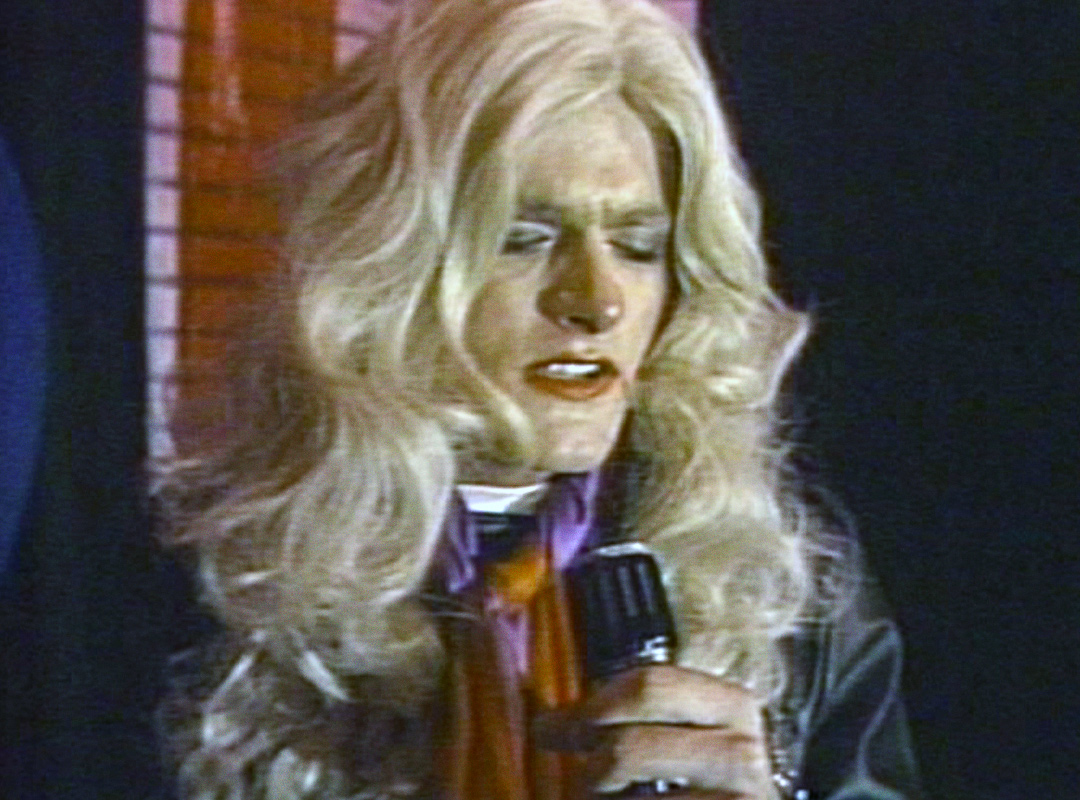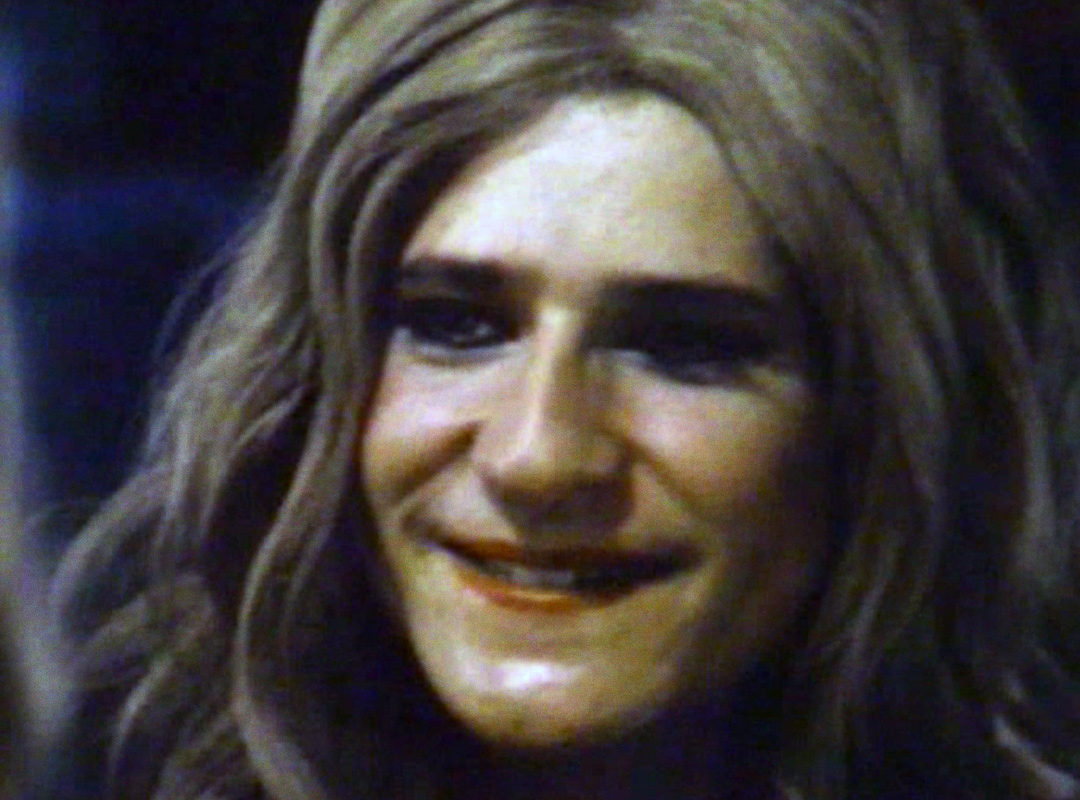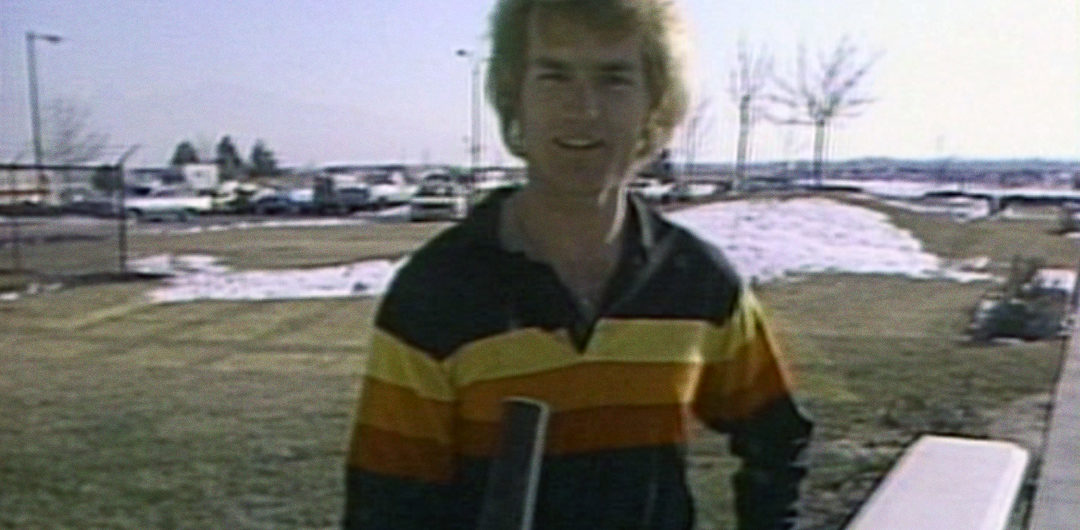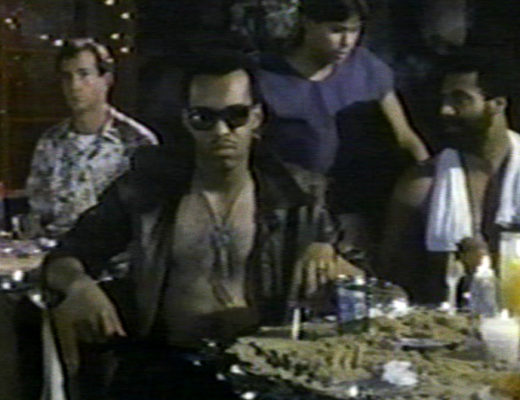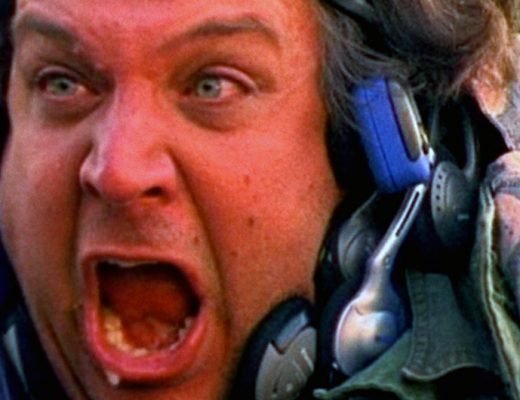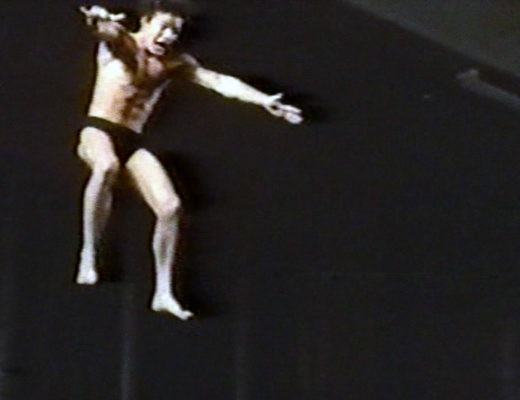Life. Art. Olivia Newton-John.
Over the past 4- years, the insurgence of vintage “found” media as a mostly poignant, sometimes hilarious document of society’s fringes has become inescapable. And much appreciated. From Jonas Mekas’s sprawling 1970 film diary Walden right on through to the Found Footage Festival, yesterday’s eccentricities are tomorrow’s cultural benchmarks. Need tangible proof? Look no further than The Beaver Trilogy, in which the chance chronicle of one man’s obsession provides enough grist to inspire Sean Penn and Crispin Glover to dress in drag and belt out Olivia Newton-John’s “Please Don’t Keep Me Waiting.”
One part documentary and two parts fictionalized reenactment of said documentary, The Beaver Trilogy is an experiment so distinct, layered, and brazenly raw that it eludes an appropriate cinematic analogy. As a film, it’s mesmerizing. As an extract of human psyche, it’s nearly debilitating. All together, it cannot — and should not — be ignored.
“I’m the Beaver Rich Little.”
And so begins the 30 minute docu-snapshot The Beaver Kid (1979), as we meet the late Richard LaVon Griffiths, aka “Groovin’ Gary”, an aspiring impressionist from Beaver, Utah. Caught on Trent Harris’ camcorder in a Salt Lake City television station parking lot, the cameraman proceeds to film a few of Gary’s impressions and showbiz aspirations, followed by a tour of his peculiar ’64 Chevy Impala. The two men say their goodbyes. Two months later, Harris receives a letter. Obviously inspired by their random meeting, Gary has invited Trent to document a talent show in Beaver. A talent show in which Gary will share his infatuation with Olivia Newton-John by performing with a live band as “Olivia Newton-Don.” Trent accepts. The results will destroy you on every level.
Cut to 1981 and The Beaver Kid #2. Two years on from The Beaver Kid, director Harris teams up with Sean Penn to create an ultra-cheap, 20-minute video interpretation of his experience with Groovin’ Gary. Utilizing footage from the documentary, the film globs on trite details for easy yuks while imbuing the whole thing with some not-so-subtle darkness. The saving grace? Sean Penn’s uncanny, pre-Jeff Spicoli (but still very Jeff Spicoli) take on Gary. At certain moments, it’s chilling. At others, it’s played strictly for laughs.
Now it’s 1984. Now working with a larger budget, scope, and team, Harris gives his final word on the antics of Gary with The Orkly Kid. Upping the pathos and downing the stale humor, the 30-minute film perfectly casts an uncomfortable, sweaty Crispin Glover as Gary, while taking further liberties with actual events. In short, Orkly is a sincere fictionalization, rather than a weekend goof-off like Beaver Kid #2. Both films remain fascinating in their respective contexts. However, neither one holds a candle to the real thing — and that’s what makes The Beaver Trilogy so utterly impactful.
Let’s face it. It’s easy to laugh at Groovin’ Gary. I did. Director Trent Harris did. Hell, even Sean Penn did. And why not? On paper, the idea of this entire endeavor is inherently absurd. But a few days later, I began to realize that laughing was simply a defense. Gary, the REAL Gary, is 100% earnest. He has no qualms about revealing his curious passions or following exactly what his heart tells him to do. At times, that can be intimidating. So we laugh it off. There’s nothing wrong with that — we’re all human. But the impact is obvious. Regardless of its complex and conflicting intent, The Beaver Trilogy allows us to think, feel, and simply be human. Unabashedly.
And that’s never a small feat.
